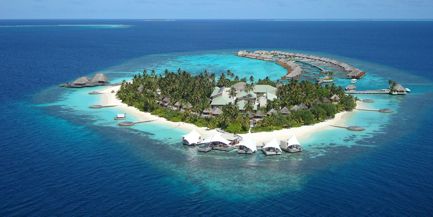
Maldives (Dhivehi: ދިވެހިރާއްޖެ Dhivehi Raajje) Travel Guide, are an archipelago of 1,192 coral islands grouped into 26 coral atolls (200 inhabited islands, plus 80 islands with tourist resorts) in the Indian Ocean. They lie south-southwest of India and are considered part of Southern Asia.
Formerly a Sultanate under Dutch and British protection, the Maldives are now a republic. Long ruled over with an iron fist by Maumoon Abdul Gayoom, who did not hesitate to jail dissidents and was re-elected five times in more or less rigged elections, resistance to his rule culminated in violent rioting in 2003 and 2004. Under international pressure, free and fair elections were finally held in 2008, and Gayoom gracefully conceded defeat to opposition leader Mohamed Nasheed, “Anni”. Following protests that started on May 1, 2011, Mohamed Nasheed was forced to resign from office on February 7, 2012. Mohammed Waheed Hassan , supported by the former dictator, was appointed president of the Maldives. There have been reports on violence and human rights violations by the security forces against protesters backing Nasheed. The next elections are to be held in July 2013.
The Tsunami of 26 December 2004 caused extensive damage to the Maldives – of a population of only 290,000, over a third was directly affected by the tsunami and more than 15,000 people were left homeless. The economic damage alone was over 62% of the GDP or US$470 million.
The immediate response from international donors and agencies mobilized more than US$400 million in aid after the disaster, much of which was used to help misplaced persons rebuild their homes and infrastructure damaged by the waves. As of December 24, 2010, six years after the tsunami, the number of persons living in temporary shelters had fallen from 15,000 to only 1,600 people.
Economy
Tourism, Maldives largest industry, accounts for 20% of GDP and more than 60% of the Maldives’ foreign exchange receipts. Over 90% of government tax revenue comes from import duties and tourism-related taxes. Over 600,000 tourists visited the islands in 2006. Fishing is a second leading sector. The Maldivian Government began an economic reform program in 1989 initially by lifting import quotas and opening some exports to the private sector. Subsequently, it has liberalized regulations to allow more foreign investment. Agriculture and manufacturing continue to play a minor role in the economy, constrained by the limited availability of cultivable land and the shortage of domestic labor. Most staple foods must be imported. Industry, which consists mainly of garment production, boat building, and handicrafts, accounts for about 18% of GDP. Maldivian authorities worry about the impact of erosion and global warming on their low-lying country; 80% of the area is one meter or less above sea level.
Culture
Maldivians are almost entirely Sunni Muslim, and the local culture is a mixture of South Indian, Sinhalese and Arab influences. While alcohol, pork, dogs and public observance of non-Muslim religions are banned on the inhabited islands, the resort islands are allowed to exist in a bubble where anything goes.
Note that the weekend in the Maldives runs from Friday to Saturday, during which banks, government offices and many shops are closed. You won’t notice this at the resorts though, except that lunch hours may be shifted for Friday prayers.
Climate
The Maldives are tropical, with plenty of sunshine and temperatures around 30°C throughout the year. However, rainfall increases considerably during the April-October southwest monsoon, particularly from June to August.
Regions
The Maldives are formed of 26 atolls, or atholhu in Dhivehi — the source of the English word. These are not single islands, but giant ringlike coral formations hundreds of kilometers wide that have fragmented into countless islands.
Atoll naming is complex, as the atolls have both lengthy traditional Dhivehi names like Maalhosmadulu Dhekunuburi, and snappy code names like Baa that refer to administrative regions and may consist of more than one geographical atoll. The code names are actually just the letters of Dhivehi alphabet, but being easier for non-Maldivians to remember and pronounce, the code names are popular in the travel industry and are hence also used here. Of the 20 administrative atoll groups, only (parts of) 10 are open to tourism, and from north to south these are:
- Lhaviyani (Faadhihpolhu)
- Raa (Maalhosmadulu Uthuruburi)
- Baa (Maalhosmadulu Dhekunuburi)
- Kaafu (North and South Male Atoll)
- Site of the capital Male and the airport, home of most Maldivian resorts.
- Alifu (Ari)
- To the west of Kaafu, the second most popular group.
- Vaavu (Felidhu)
- Meemu (Mulak)
- Faafu (Nilandhe Atholhu Uthuruburi)
- Dhaalu (Nilandhe Atholhu Dhekunuburi)
- Seenu (Addu)
- The southernmost atoll, the second-largest in population and site of Gan International Airport.
Other atolls are Gaafu Alifu, Gaafu Dhaalu, Gnaviyani, Haa Alifu, Haa Dhaalu, Laamu, Nyavinani, Seenu, Shaviyani, and Thaa.
Cities
Male – The capital and largest city.
Addu City – Second-largest city and short-lived home of the Suvadive secessionist movement.
Resort Islands
Bandos Island Resort Spa Maldives (4 star plus island, best holiday, honeymoon and family resort), BookMaldivesResorts.com C/O Sunny Maldives Pvt Ltd Mehenli Goalhi, Male’ Rep. of Maldives (Just a 10-minute boat ride from Male International Airport.), Best for an island vacation in budget price. Big House reef, so good for snorkeling. Cheap and best price or Packages with affordable holiday rates. water sports and activity centre and dive training school are available. Bandos Island hotel has 6 dining options and free Wi-Fi in its lobby. Price USD 75$ to 335$. edit
Adaaran Club Rannalhi Resort (4 Star Island Hotel Maldives, All inclusive Meal), BookMaldivesResorts.com C/O Sunny Maldives Pvt Ltd Mehenli Goalhi, Male’ Rep. of Maldives (Located only 34 km from the Male International Airport, Adaaran Club Rannalhi is reached via a brisk 45 minute speedboat.), Beach bungalows. Over water bungalows. Diving. Snorkeling on big house reef. Paddle Sports. Catamaran Sailing. Windsurfing. Night Fishing. Spa Treatments. Reflexology Treatments. Price USD 122$ to 210$. edit
Kihaad Resort Maldives (Maldives Kihaad Resort luxury 5 star All inclusive resort Maldives), Maldives Deluxe Resorts, Mehenli Goalhi, Male’ Rep. of Maldives (Kihaad Maldives, settled on a Maldives island of Baa Atol. The island is a 25 minute seaplane ride from Male International Airport or 20 minutes domestic plane to Dharanvadhoo domestic airport plus 10 minutes speed boat ride.), Maldives All Inclusive Luxury Resort, Big House reef for snorkeling, 48 Reserve Beach Villas – Size : 77 Sqm, 34 Lagoon Prestige Beach Villas – Size : 89 Sqm, 18 Sunset Prestige Pavilion Beach Villas – Size : 110 Sqm, 10 Water Villas – Size : 150 Sqm, 4 Family Junior Suites – Size : 250 Sqm, 2 Water Suites – Size : 270 Sqm, 2 2 Bedroom Family Exec Suites With Pool – Size : 310 Sqm, Marine Protected Area Biosphere Reserve by UNESCO where whale sharks (Mega fauna) and manta rays (giant oceanic mantas) meet seasonally, The Price displayed are per person per night based on DBL sharing basis, Price will vary depending on the traveling dates/Seasons and number of persons occupying in the same room. Price between 180$ to 770$. edit
Kurumba Maldives, (10 min from airport by speedboat), checkin: 3PM; checkout: Noon. 4.5 star resort with 8 restaurants, 3 bars, nightly entertainment, spa, water sports, dive centre, recreation centre, house reef and nice beaches. Range of meal plans including all inclusive menu options. US$300-1500. edit
Anantara Kihavah Villas (Maldives 5 star Luxury Resort), Maldives Deluxe Resorts, Mehenli Goalhi, Male’ Rep. of Maldives (Anantara Kihavah Villas is located on the Baa Atoll, which situated on the west of the Maldives’ atoll chain. It is only 35 minutes by seaplane from Male International Airport to the resort.), Underwater Restaurant and Underwater Dining, Dive Centre and Marine Lab, PADI Diving Courses, Water Spots and Activities, Library and Business Centre, Meeting Facilities, Beach Pool Villa ( 32 Suites, Villa Size: 258 Sqm), Over Water Pool Villa ( 40 Suites, Villa Size: 259 Sqm ), Two Bed Room Beach Pool Residence ( 1 Suites , Villa Size: 785 Sqm ), Two Bedroom Over Water Pool Residence ( 2 Suites, Villa Size: 861 Sqm ), Three Bedroom Presidential Beach Residence ( 1 Suites, Villa Size: 2736 Sqm ), The Prices displayed are per person per night based on DBL sharing basis, Price will vary depending on the traveling dates/Seasons and number of persons occupying in the same room. Price between 536$ to 3,900$. edit
Angsana Velavaru Resort And Spa (Maldives Luxury Resort, 5 Star), Maldives Deluxe Resorts, Mehenli Goalhi, Male’ Rep. of Maldives([email protected]) (This resort is located on its own tropical Island South Nilandhe Atoll (Dhaalu Atoll), It is only 45 minute flight from Maldives, Male International airport.), checkin: 2:00 PM; checkout: 11:00 AM. Restaurants, Angsana Brand Spa, Kids Club, Diving, Underwater wedding and Castaway island beach wedding. Beach Front Villa ( 28 Suites, Villa Size: 88 Sqm), Beach Front Jet Pool Villa ( 28 Suites, Villa Size: 30 Sqm), Deluxe Beach Front Pool Villa ( 18 Suites, Villa Size: 207 Sqm), Velavaru Villa ( 2 Suites, Villa Size: 323 Sqm), Angsana Pool Villa ( 2 Suites, Villa Size: 323 Sqm), Inocean Pool Villa ( 14 Suites, Villa Size: 175 Sqm), Sunset Inocean Pool Villa ( 17 Suites, Villa Size: 175 Sqm), The Prices displayed are per person per night based on DBL sharing basis, Price will vary depending on the traveling dates/Seasons and number of persons occupying in the same room. Price between 204$ to 816$.
Get in
The Maldives have a remarkably easy visa policy — Everybody gets a free 30-day visa on arrival, provided that they have a valid travel document, a ticket out and proof of sufficient funds, defined as either a confirmed reservation in any resort or US$100 + $50/day in cash. This can be extended up to 90 days at Male, but you’ll need to indicate where you’re staying for that long. See the Department of Immigration and Emigration website for details.
Importing alcohol, pork or pornography (very broadly defined) into the Maldives is forbidden and all luggage is X-rayed on arrival. On the way out, note that exporting sand, seashells or coral is also forbidden.
By plane
Practically all visitors arrive at Malé International Airport (IATA: MLE, ICAO: VRMM), located on Hulhulé Island right next to the capital Male. The airport is served by a wide array of flights to China, India, Sri Lanka, Dubai and major airports in South-East Asia, as well as an increasing number of charters from Europe. Many flights stop in Colombo (Sri Lanka) on the way.
Gan Airport (IATA: GAN, ICAO: VRMG), on the southern atoll of Addu, also serves an international flight to Milan several times a week.
Departure taxes are included in your ticket.
British Airways now flies directly from London Gatwick to Male 3 times a week (Sunday, Tuesday and Friday)
Cathay Pacific Airlines flies 4 times a week from Hong Kong (Wed, Thu, Sat, Sun)
Singapore Airlines flies daily direct from Singapore to Male, with late night timings.
Turkish Airlines flies directly from Istanbul Ataturk to Male 5 times in a week.
Emirates flies direct from Dubai to Male’, twice a day.
Austrian Airlines flies between Vienna and Male once a week (outbound Vienna on Wednesday, inbound on Thursday morning)
By boat
There are no regular passenger boats to the Maldives. Even yachts usually steer clear, as navigating around the reefs is hazardous and permits are expensive.
Get around
Getting around in the Maldives takes three forms: boats, sea planes (air taxis) and private yachts. The boats are the Maldivian equivalent of a car, while planes and private yachts are mainly reserved for tourists.
Air taxis and boats prefer not to operate at night, so if you arrive at the airport after dark and are going to a distant resort, you may have to spend the night in Male or at the airport hotel in Hulhule. Private transfers, though expensive can be opted for resort transfers, instead of spending the whole night at Male. Private transfers could cost anywhere between US$500-800. On the way back, there may also be a significant gap between the time your transfer arrives and your flight departure. Check with your resort or travel agent.
Independent travel to inhabited islands other than Male requires an Inter Atoll Traveling Permit (IATP), and receiving one requires Rf.10, a copy of your passport and — the hard part — an invitation from a resident of the island you wish to visit. Permits are not necessary for the organized island-hopping tours arranged by resorts and liveaboards.
Talk
Maldivian Dhivehi, a close relative of Sinhala (spoken in Sri Lanka) but with borrowings from Urdu, Hindi, Arabic and many other languages, is the official language. It is written in a remarkable hybrid script called Thaana, which uses Arabic and Indic numbers as the base of the alphabet, written from right to left with Arabic vowel signs. The script is thought to have originated as a secret code for writing magical formulas so that outsiders can’t read them, which would also explain why the ordering of the alphabet is, as far as linguists can tell, completely random!
English is widely spoken, particularly by government officials and those working in the tourism industry. English is the language of instruction in schools, which means that you will be able to communicate with the locals with varying degrees of difficulty.
Since Maldives happen to be a popular destination for German and Italian holiday goers, a sizeable number of local resort workers are able to speak fluent German and Italian. This may vary depending on the resorts you plan to visit, though.
Diving and snorkelling
Aside from making the water bungalow rock on your honeymoon, the primary activity on the Maldives is scuba diving. The atolls are all coral reefs hundreds of kilometers away from any major landmass, meaning that water clarity is excellent and underwater life is abundant. Manta rays, sharks, even a few wrecks, you name it, you can find it in the Maldives.
While diving is very good by world standards even in the immediate vicinity of Male, visibility and the chance of encountering large pelagics increases as you head to the outer atolls. Many divers opt for liveaboards, which can actually work out much cheaper than paying high resort fees. Currents vary considerably, with generally little inside the atolls but some powerful streams to be found on the sides facing the open sea. Water in the Maldives is warm throughout the year and a 3mm shorty or Lycra diveskin is plenty. Diving is possible throughout the year, but rain, wind and waves are most common during the season of the southwest monsoon (June-August). The best time for scuba diving is from January to April, when the sea is calm, the sun is shining and the visibility can reach 30 m. Decompression chambers can be found on Bandos in Kaafu (15 min from Male), Kuredu in Lhaviyani Atoll and at Kuramathi on Alifu.
The one downside to diving in the Maldives is that it’s quite expensive by Asian standards. Prices vary considerably from resort to resort, with specialist dive resorts offering better prices, but in general, you’ll be looking at around US$50 for a single boat dive with your own gear and closer to US$75 without. Beware of surcharges: you may be charged extra for boat use, guided dives, larger tanks, etc. On the upside, safety standards are usually very high, with well-maintained gear and strict adherence to protocol (check dives, maximum depth, computer use, etc) being the rule rather than the exception.
Surfing
The Maldives is becoming an increasingly popular surfing destination. Turquoise water and perfect waves makes it an ideal and uncrowded destination for surfers looking for smooth surfing conditions.
The best period for surfing in the Maldives is between March and October; the biggest waves occurring in June, July and August. This paradise is exposed to the same swells as Indonesia is, except that its higher latitude and its South-East exposure offers cooler and less hardcore surfing. The recent O’Neil Deep Blue Contests held in the Maldives has placed Maldives firmly on the world’s surf map. While most of the recognized surf breaks are in Male’ Atoll, there is certainly more to be discovered.
Specialized companies organize tailored multi-day boat trips in the region, allowing surfers to move easily from one point to another and maximizing the surfing time.
Eat
All the resorts are self contained so they have at least one restaurant, which generally serve the type of cuisine expected by their guests. ( i.e. modern European or generic Asian). Breakfast is almost always included, and most resorts offer the option of half-board, which means you get a dinner buffet, and full board, which means you get a lunch and dinner buffet. These can limit the damage compared to ordering a la carte, but your options are typically very limited and drinks are often not covered, not necessarily even water. If you’re planning on drinking a lot, it may be worthwhile to go all inclusive, but even this typically restricts you to house drinks.
The only other place to find food is Male. This comes in two forms. Either small restaurants aimed at the tourists (of which there are a couple of nice Thai restaurants), which are often expensive, or small cafes called hotaa, selling local Maldivian food at prices as low as Rf.20 for a complete meal.
Drink
As the Maldives are Muslim, alcohol is banned for the local population. However, nearly all resorts and liveaboard boats are licensed to serve it, usually with a steep markup. The expatriate liquor permit which used to allow expats to buy alcohol for their own consumption has been removed. The only place near Male, aside from resorts, where people can drink alcohol is at the Hulhule Island Hotel, commonly known as HIH or the airport hotel.
Maldivians generally do not drink alcohol although this is less true of the younger generation. They are, however, unhappy about being filmed or photographed while drinking.
Tap water in resorts may or may not be drinkable check with management. Bottled water is extortionately priced, with US$5/bottle being typical.
Stay safe
There is very little crime in the tourist resorts as the tourists generally stay in the resorts since there is not much to do outside. This means that you can feel safe on your own at all times. Generally Maldivians are honest, helpful and welcoming people although you are unlikely to come into much contact with them in resorts.
There are no drugs anywhere in the resorts but most Maldivians have easy access to drugs, reportedly 50% of the young generation are drug addicts; there is a growing drug problem among the local population and so petty crime to support it has arisen. Take the usual precautions such as not leaving money and valuables lying around. Take note that every $50 US you spend at a bar or restaurant represents 10 days’ wages for cleaners.
Anti-government street rioting occurred in Male between 2003 and 2005. Political tensions have been relieved by the opposition victory in the elections of 2008, but came back in second half of 2011 and continue through 2012.
Stay healthy
There are no serious problems with diseases in the Maldives. Beware that tap water may not be drinkable at all resorts: enquire locally. The Maldives are malaria-free, but some islands do have mosquitoes and catching dengue fever from them is possible, albeit highly unlikely. For those coming from regions infected by yellow fever, an international certificate of inoculation is required.
Most of the problems come from diving or sun related injuries. Heat stroke always cause problems in the tropics but couple that with divers spending hours at a time on a boat wearing a wetsuit and overheating of one form or another is a real issue. Keeping this in mind, such injuries will be easily avoidable as long as you drink lots of water and get into the shade as much as possible.
Lots of the resorts have their own doctor or nurse and most are within easy reach of the decompression chambers. Male has an efficient and fairly modern hospital but bear in mind that it is a long way to get medevaced home from.

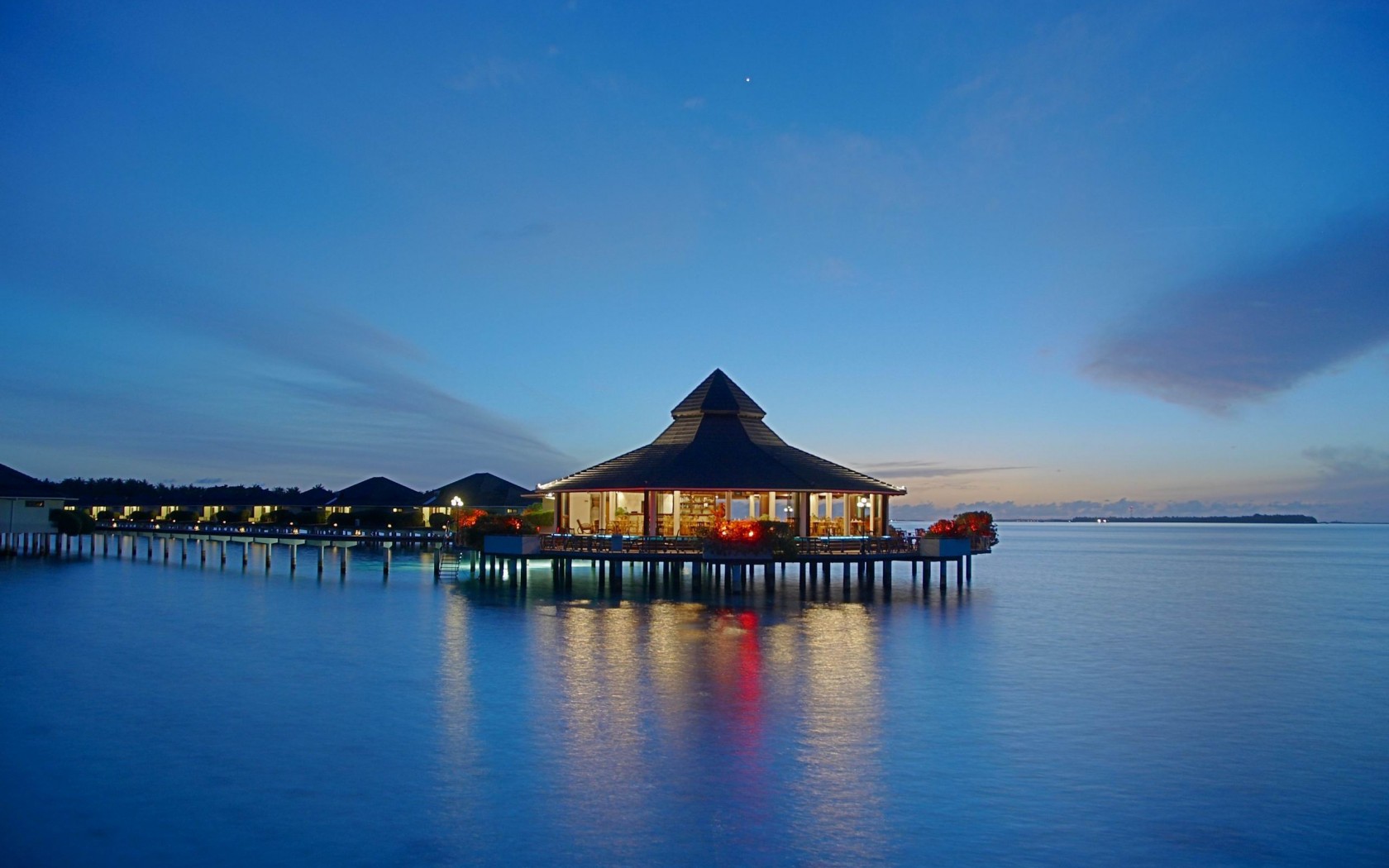
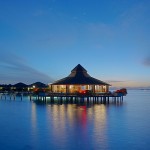
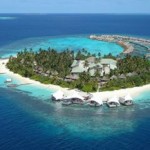
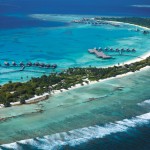
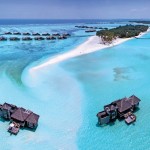
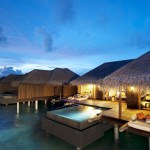
0 Comments